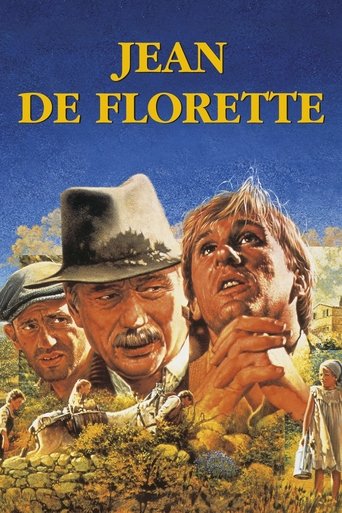For some men, land and water are more precious than flesh and blood.
"Jean de Florette," a poignant 1986 French-Italian cinematic masterpiece produced by DD Productions and Films A2, delves deep into the themes of greed, revenge, and the harsh realities of rural life. Directed by Claude Berri, the film is an adaptation of Marcel Pagnol's novel and transports viewers to the sun-drenched landscapes of Provence. The narrative follows the tragic journey of Jean Cadoret, portrayed by Gérard Depardieu, a city-dweller who inherits a farm and dreams of a pastoral life, only to be ensnared in a sinister plot by his envious neighbor, César Soubeyran, played by Yves Montand. The film's strength lies in its compelling character development and the stark portrayal of human nature. Jean's relentless optimism and determination to succeed against all odds are juxtaposed with the cunning and ruthless machinations of César, known as Le Papet, and his nephew Ugolin, played by Daniel Auteuil. The tension between these characters is palpable, as Le Papet and Ugolin secretly sabotage Jean's water source, leading to a heart-wrenching struggle for survival. The performances are nothing short of exceptional, with Depardieu's portrayal of Jean's unwavering spirit and Montand's chilling depiction of Le Papet's cold-heartedness leaving a lasting impact on the audience. Visually, "Jean de Florette" is a feast for the eyes, with the lush cinematography capturing the beauty and brutality of the Provençal countryside. The film's meticulous attention to detail in depicting rural life adds a layer of authenticity that enhances the storytelling. From the rustic interiors of the farmhouses to the sprawling fields and rugged hills, every frame is a testament to the director's vision and the cinematographer's skill. The evocative score by Jean-Claude Petit further complements the film's emotional depth, weaving a haunting melody that underscores the tragedy unfolding on screen. Ultimately, "Jean de Florette" is more than just a tale of rural strife; it is a profound exploration of the human condition. The film's narrative arc, culminating in a devastating climax, serves as a powerful reminder of the consequences of greed and the fragility of dreams. As Jean's story unfolds, viewers are left to ponder the moral complexities of the characters' actions and the inexorable forces that drive them. This timeless classic continues to resonate with audiences, cementing its place as a seminal work in French cinema.
Year1986
Budget4940939$
Runtime121 min
GenresDrama
Production countriesFranceItalySwitzerland



